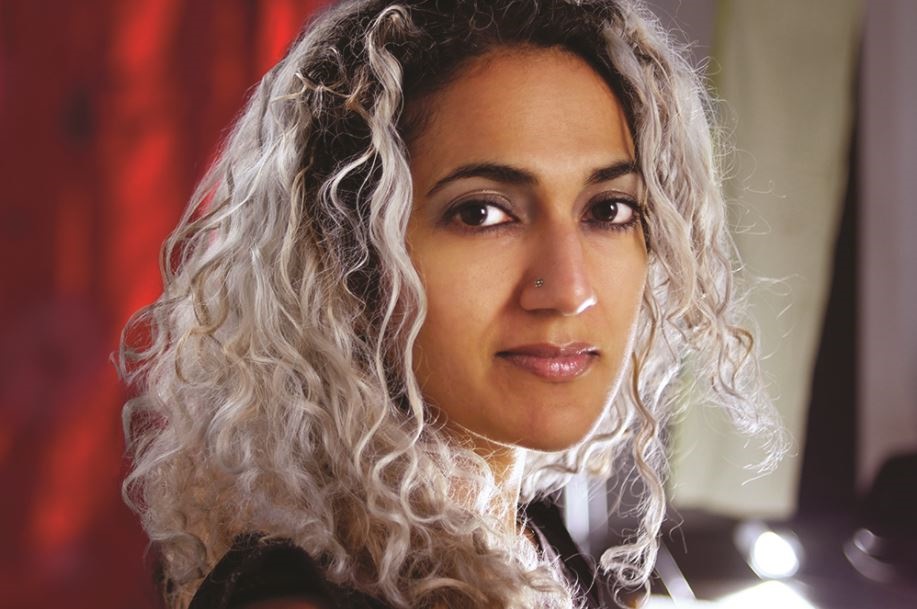 |
| photo: Josh Steinbauer |
Abeer Y. Hoque is a Nigerian-born Bangladeshi American writer and photographer. She has published a book of travel photographs and poems called The Long Way Home
(Ogro Dhaka, 2013) and a book of linked stories, photographs and poems, The Lovers and the Leavers
(Bengal Lights, 2014; HarperCollins India, 2015). She is a Fulbright Scholar and has received several other fellowships and grants. Her writing and photography have been published in Guernica
, Outlook Traveller
, Wasafi ri
, ZYZZYVA
, India Today
and the Daily Star
. She has degrees from the Wharton School of Business and an MFA in writing from the University of San Francisco. Her memoir, Olive Witch
, is published by Harper360 (February 7, 2017).On your nightstand now: The Permanent Resident by Roanna Gonsalves, an assured debut collection about the Goan diaspora in Australia.
Em and the Big Hoom by Jerry Pinto, a wise wry Bombay novel about madness.
The Sellout by Paul Beatty, only a few pages in, but it's so funny and sharp.
The Sleepwalker's Guide to Dancing by Mira Jacob, a sensitive, warm novel about families, illness and loss.
And the Walls Come Crumbling Down by Tania de Rozario, a beautiful hybrid poetic memoir about relationships and home.
Favorite book when you were a child:The Book of Enchantments and Curses by Ruth Manning-Sanders--a collection of fairytales and folk tales from around the world. I cannot imagine my moral universe or my character without some of these stories. When I was a teenager and for years after, I loved
Ender's Game by Orson Scott Card with its thrilling, all-encompassing underdog story.
Your top five authors:David Mitchell (a cerebral and gorgeous writer), Toni Morrison (every book of hers wrecks me with truth and beauty), Chimamanda Ngozi Adichie (my brilliant old soul Nsukka homegirl), Rumi (the first time I appreciated joy in poetry), Margaret Atwood (the smartest psychological fiction out there).
Book you've faked reading:David Foster Wallace's
Infinite Jest. I started it a few times and couldn't get into it. Also I think I'd need to sign up for a course to read
Ulysses by James Joyce. Or anything by Thomas Pynchon.
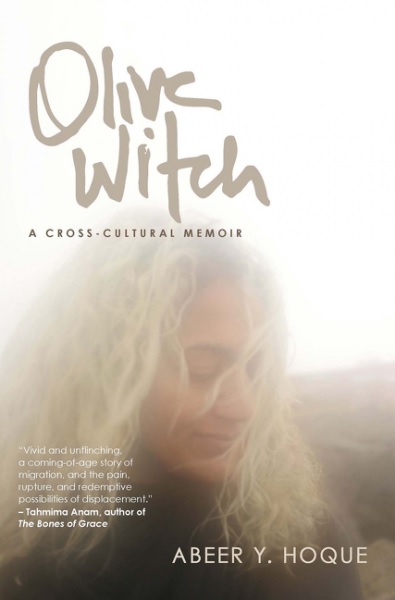 Book you're an evangelist for:
Book you're an evangelist for:So many! Here's a few recent books, and some older gems:
Salt Sugar Fat by Michael Moss: about how the food industry and government conspired to change American diets and lifestyle, mostly successfully, and mostly for the worse.
Behind the Beautiful Forevers: Katherine Boo's nonfiction book is set in the Mumbai slums, and I feel like it changed how I looked at the world and my privileges.
Island of a Thousand Mirrors: this novel by Nayomi Munaweera is a heartbreaking and luscious education in Sri Lankan history.
Roots by Alex Haley: the first American slavery story I read, and it wrecked me and blew me away.
The Good Earth by Pearl S. Buck: a brilliant and sweeping story about a farming family in 1920s China.
Book you've bought for the cover:This might sound terrible but I can't remember the last time I picked a book by its cover! I have such a long reading list that I don't always feel I have the so-called luxury. But I know I giggled when I saw the cover for Amy Schumer's memoir,
The Girl with the Lower Back Tattoo, but that was more for the title.
Book you hid from your parents:A book of stories simply called
Erotica. I used to sometimes read books from my dad's enormous library in Nigeria, and this item was actually from his shelves. I somehow knew I had to hide it (I was about 8, I think). I read it furtively, when it wasn't hidden under my mattress, until one day it wasn't there, and of course I couldn't say anything at all.
Book that changed your life:Every book I love changes my life. I'll mention the latest one:
Shrill by Lindy West, which is a funny memoir by a fat feminist comedian and writer. It made me understand anew the cruelty we mete out to fat people, and addresses many of the awful things that are on the rise today (online/offline acts of hatred, prejudice against women and women in comedy, and more), all while making me laugh.
Favorite line from a book:"Morning is wiser than the evening." This line is from the Russian fairytale "Vasilisa Most Lovely" from the
Enchantments and Curses book of folktales that I loved as a child. When I was younger, I was in thrall to the sexy night, to its potential and dimension and dark, and I hated the morning with all its harsh lit mundane ways. It took me many years to understand the gifts of morning, and the power of a good night's sleep.
Five books you'll never part with:This question is interesting these days, because you can borrow anything from libraries, save a thousand books on your e-reader, or buy books for pennies online. I've become less beholden to the physical book in recent years, and the ones I keep turning to, in either e-book and paper form, are mostly poetry:
The Essential Rumi, translated by Coleman Barks (Rumi was a 13th-century Sufi philosopher and ecstatic, and my all-time favourite poet).
A Happy Farewell by Kaiser Haq (a contemporary Bangladeshi poet, professor and freedom fighter who writes witty wise wry poems).
Collected Poems by Adrienne Rich (a fierce and feminist poet and philosopher--essential reading for the heart and mind).
Tiny Beautiful Things by Cheryl Strayed (her collected columns of unendingly compassionate and wise advice).
New and Selected Poems by Mary Oliver (wild and deep poetry, intrinsically tied to both natural and psychological worlds).
Book you most want to read again for the first time: Cloud Atlas by David Mitchell. I found this book to be such a complicated pleasure, like a set of nested puzzle boxes, each one written in its own dialect and set in a different world, and this secret refrain running through them all, like the barest smoke signal--missable if you blink, so satisfying if you don't.
How reading has changed for you as a writer and adult:I was a huge reader when I was young. I'd read the back or the first few pages to see if it was interesting to me and then devour it. I used to read 5-10 books a week. I was obsessed with everything British writer Enid Blyton wrote, and then Nancy Drew and Hardy Boys and Judy Blume when we got American books in our little Nigerian children's library. When we moved to the States, I was a teenager and I started reading fantasy and science fiction, stories about outer space and dragons and elves and aliens. I also went through the entire YA section at the marvelous Carnegie Library in Pittsburgh.
I stopped reading so voraciously when I became an adult, and even when I became a writer in my late 20s, I still wasn't reading that much. My reading had become slower, more labourious. This wasn't intentional, but more a combination of subconsciously trying to see how writers were doing their thing, and selecting books because they were critically acclaimed, or some such criteria. I added more filters to my to-read list that included prioritizing translations and writing from countries and authors not ordinarily included in the Western white male canon. This is all good, but I wasn't having as much fun reading as I did when I was young, let alone how little I was reading.
Doris Lessing once said that time was too short to read books you didn't like, and that, sometimes, it just wasn't the right time for the book and reader. So I adjusted a bit. I stop reading if I'm not enjoying a book, no guilt. And every so often, I browse the old way, without looking at the title or author to see if it's something I "should" be reading. I'm reading more now, especially as phones and e-readers are so handy, and more importantly, I'm back to loving reading again.
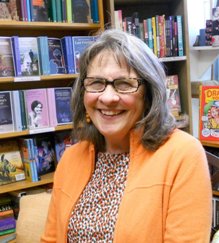 "Day by day my optimism grew along with my pride at being a part of all this: Part of a dedicated, visionary board while the equally amazing BAC [Booksellers Advisory Council] was also hard at work, not to mention the inspired and dedicated ABA staff, who bend their collective will and expend their amazing energy on our behalf. All of that and all of you. It seems to me there's nothing we can't do. As we sat there at the Town Hall, sometimes angry but always respectful, always visionary in the best sense, as, panel by panel, audience by audience, we mulled, made sense of, found useful nuggets of knowledge or technique or truth, our voices pooling and coming together.... We are an amazing group of people: booksellers, ABA staff, publishers, authors, all fashioning a life around books. I can't imagine a better one."
"Day by day my optimism grew along with my pride at being a part of all this: Part of a dedicated, visionary board while the equally amazing BAC [Booksellers Advisory Council] was also hard at work, not to mention the inspired and dedicated ABA staff, who bend their collective will and expend their amazing energy on our behalf. All of that and all of you. It seems to me there's nothing we can't do. As we sat there at the Town Hall, sometimes angry but always respectful, always visionary in the best sense, as, panel by panel, audience by audience, we mulled, made sense of, found useful nuggets of knowledge or technique or truth, our voices pooling and coming together.... We are an amazing group of people: booksellers, ABA staff, publishers, authors, all fashioning a life around books. I can't imagine a better one."








.jpg)
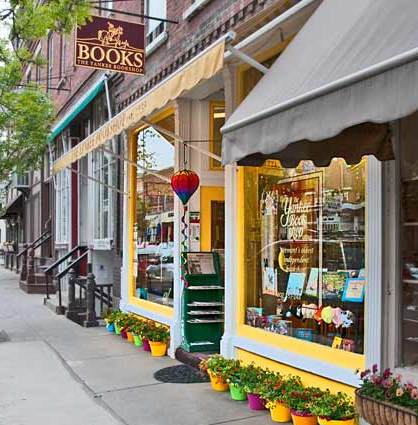 DeSanto added that the company is "excited to support our local owner-managers by providing both the stability of being associated with an established group of businesses and access our management group. As excited as we are that Kari and Kristian will be in Woodstock as our business partners, we will all miss her pretty desperately in Burlington and Essex."
DeSanto added that the company is "excited to support our local owner-managers by providing both the stability of being associated with an established group of businesses and access our management group. As excited as we are that Kari and Kristian will be in Woodstock as our business partners, we will all miss her pretty desperately in Burlington and Essex."
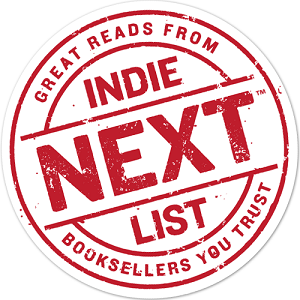 Last Thursday, February 2, the American Booksellers Association's e-newsletter edition of the Indie Next List for February was delivered to more than a third of a million of the country's best book readers. The newsletter was sent to customers of 90 independent bookstores, a combined total of 370,000 subscribers.
Last Thursday, February 2, the American Booksellers Association's e-newsletter edition of the Indie Next List for February was delivered to more than a third of a million of the country's best book readers. The newsletter was sent to customers of 90 independent bookstores, a combined total of 370,000 subscribers.
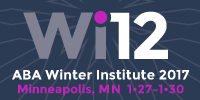 The Winter Institute panel "Training Staff to Be Backlist Experts" was moderated by Betsy Burton, co-owner of the
The Winter Institute panel "Training Staff to Be Backlist Experts" was moderated by Betsy Burton, co-owner of the 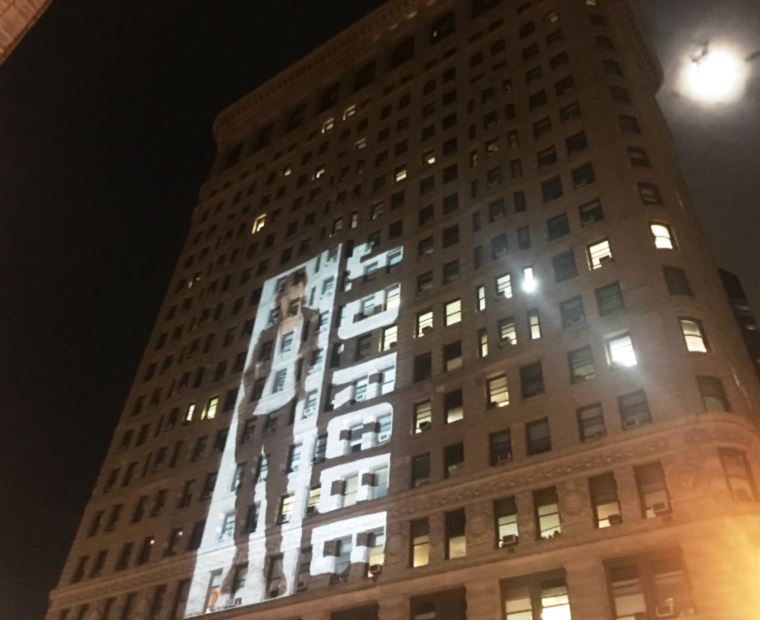 St. Martin's is the publisher of J.D. Robb's new book, Echoes of Death, so in addition to featuring the Flatiron Building--which houses the company's offices--on the book jacket, it projected a gigantic image of the author on the side of the building. Robb's husband, Bruce Wilder, owns
St. Martin's is the publisher of J.D. Robb's new book, Echoes of Death, so in addition to featuring the Flatiron Building--which houses the company's offices--on the book jacket, it projected a gigantic image of the author on the side of the building. Robb's husband, Bruce Wilder, owns 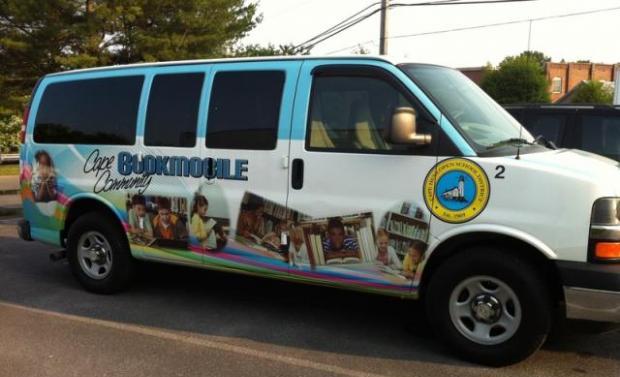 Browseabout Books
Browseabout Books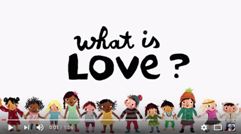 ABC Love
ABC Love
 Book you're an evangelist for:
Book you're an evangelist for: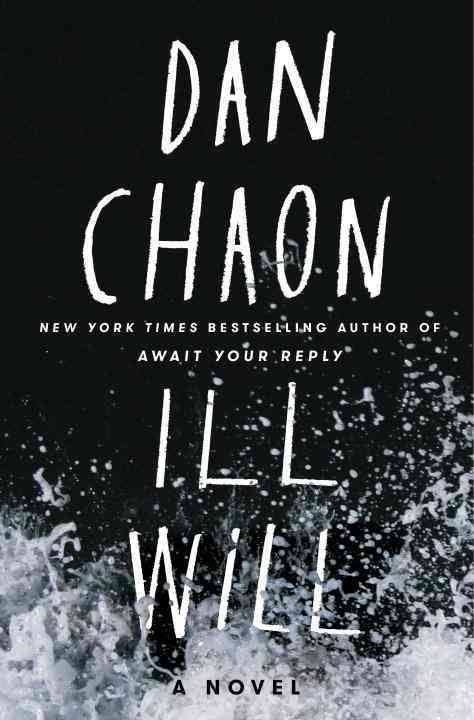 At one point in Dan Chaon's novel Ill Will, his protagonist, Dustin Tillman, alludes to a phenomenon known as scopaesthesia, "the prickle on the back of your neck when you sense that someone you can't see is looking at you." Whether or not there's a scientific basis for that sensation, you may well experience it as you read this murder mystery that's also a chilling investigation of the fallibility of memory and the damage inflicted by family secrets.
At one point in Dan Chaon's novel Ill Will, his protagonist, Dustin Tillman, alludes to a phenomenon known as scopaesthesia, "the prickle on the back of your neck when you sense that someone you can't see is looking at you." Whether or not there's a scientific basis for that sensation, you may well experience it as you read this murder mystery that's also a chilling investigation of the fallibility of memory and the damage inflicted by family secrets.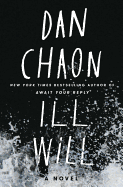
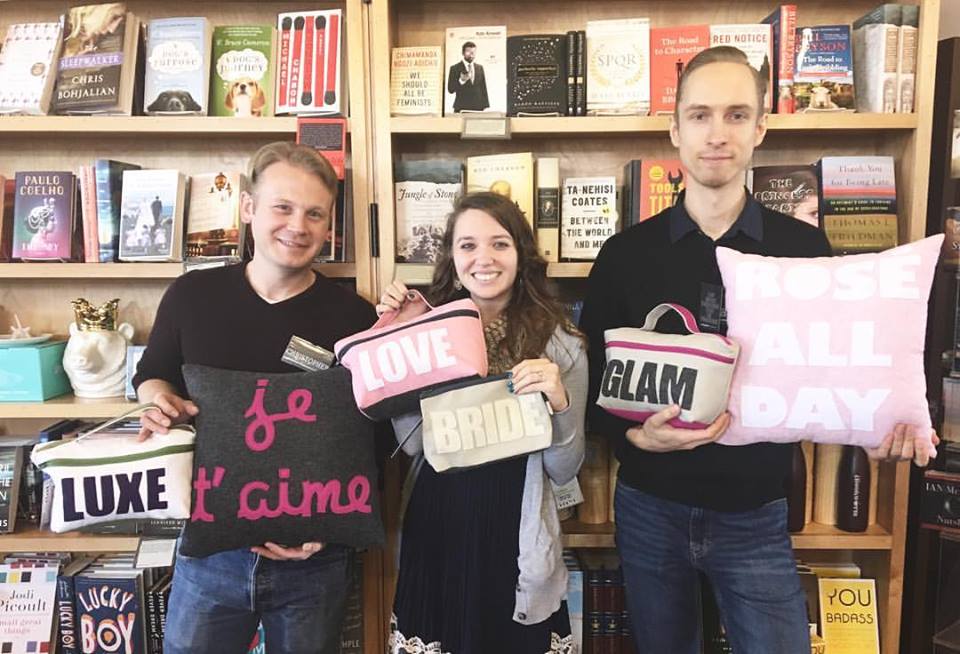
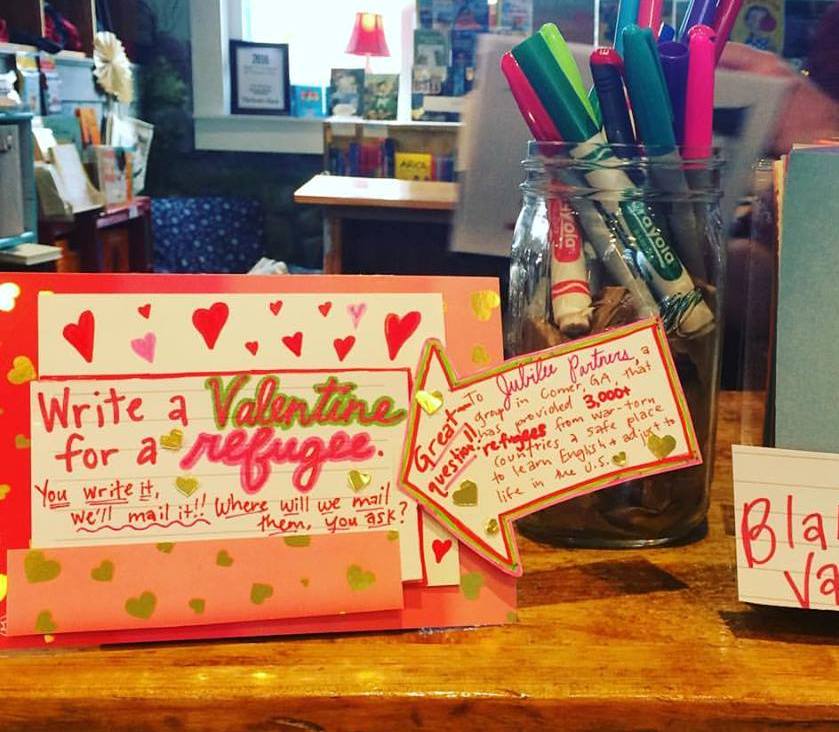 There's also a political edge to Valentine's Day 2017 in the book world, including the
There's also a political edge to Valentine's Day 2017 in the book world, including the 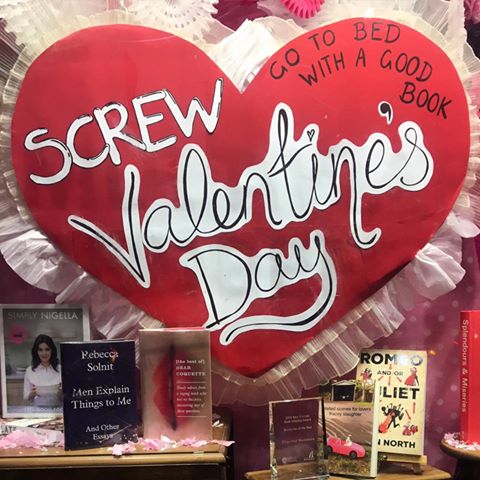 Speaking of staff picks, New Zealand's Wardini Books, Havelock North, asked: "How about this for
Speaking of staff picks, New Zealand's Wardini Books, Havelock North, asked: "How about this for